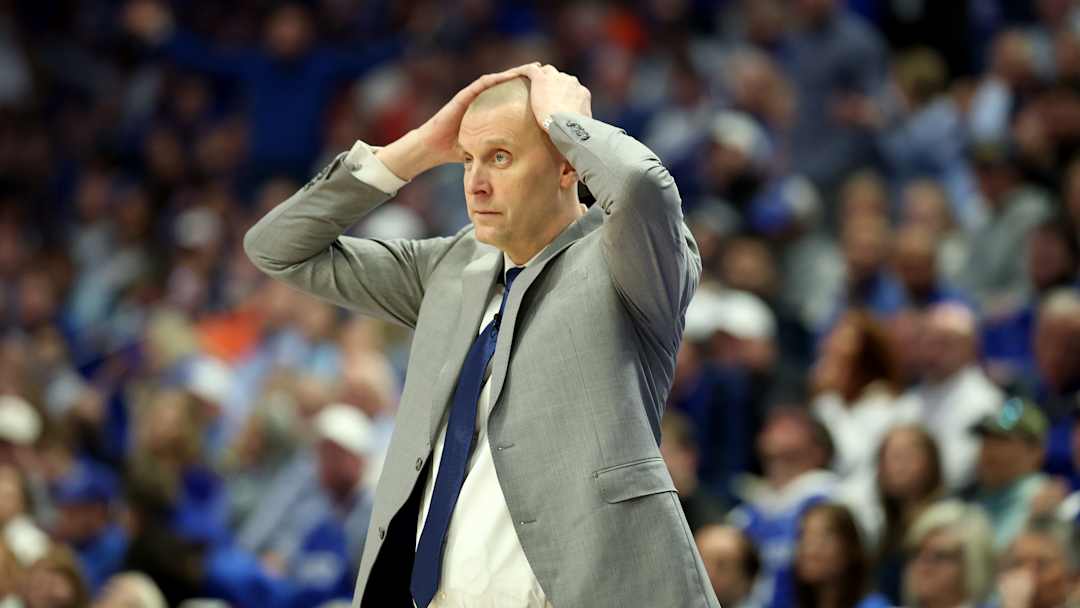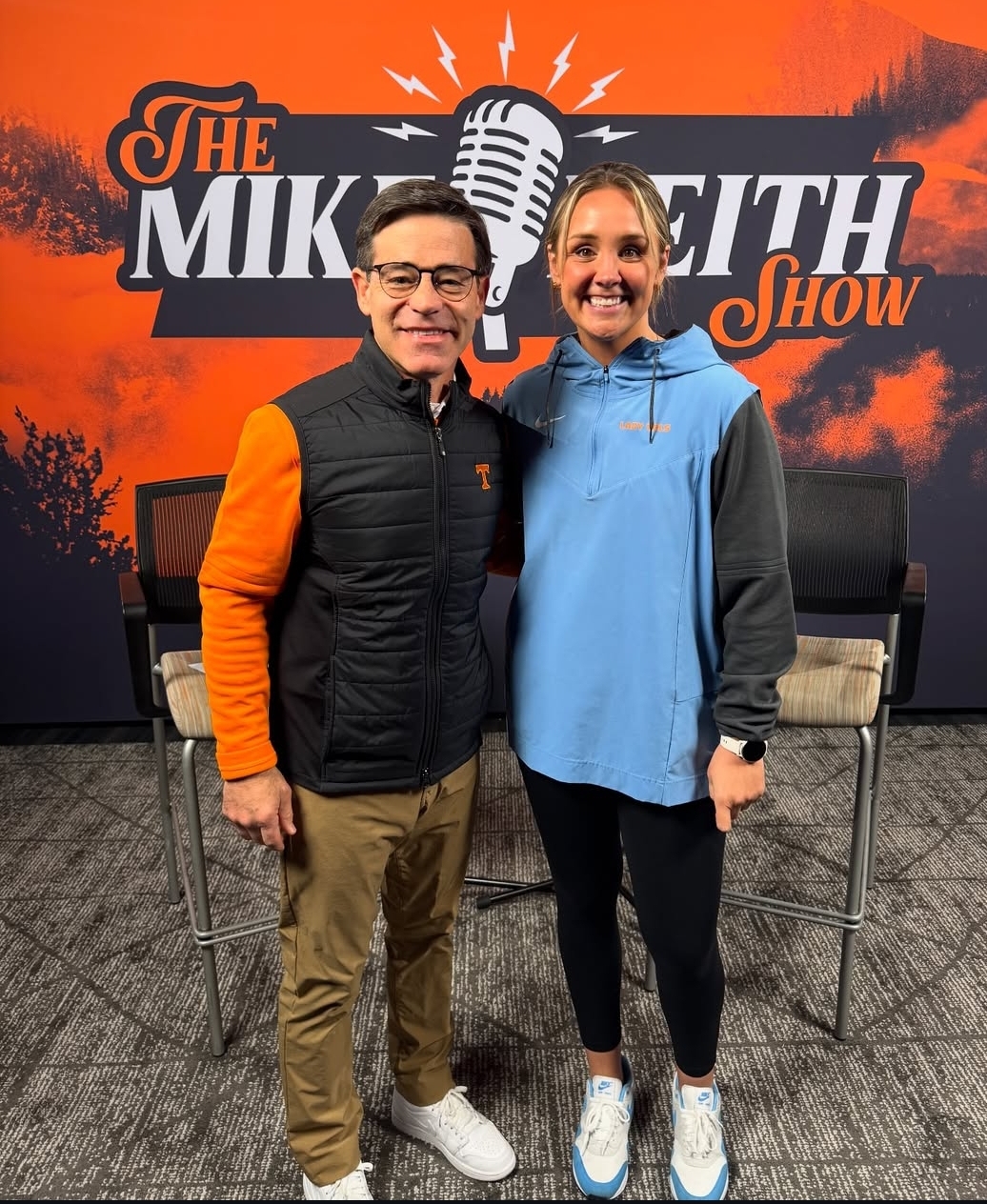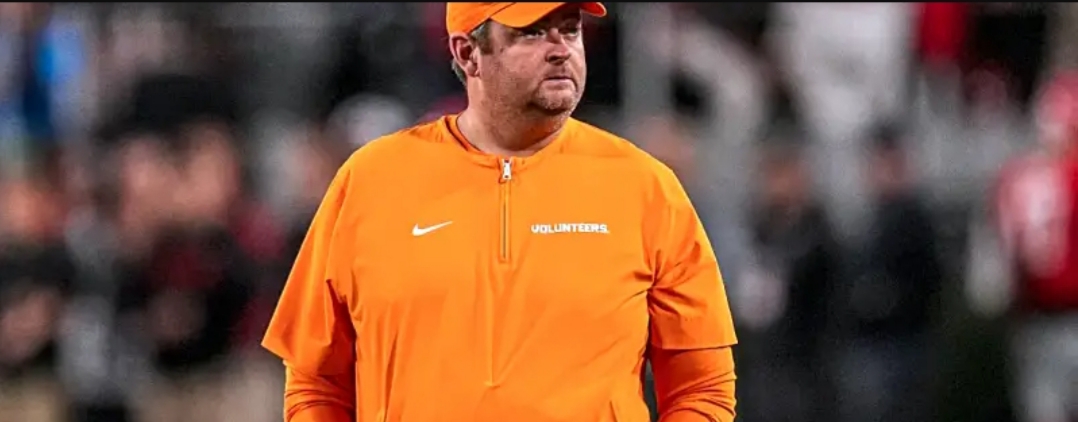Evaluating Mark Pope’s First Season: Rebuilding Kentucky Basketball Amidst Adversity
When Mark Pope took over as head coach at Kentucky, he faced an uphill battle.
With only Travis Perry and a handful of walk-ons on the roster, he had to assemble an entire team in just a few months. The rebuilding process began with Lamont Butler, and from there, Pope constructed a squad that had never played together before.
Despite the lack of chemistry, Kentucky started the season strong, notching impressive wins against powerhouse programs like Duke and Gonzaga.
However, just as things seemed to be clicking, injuries derailed the momentum. Jaxson Robinson, Kerr Kriisa, Lamont Butler, and Andrew Carr were all sidelined at different points in the season. Pope suddenly found himself with a depleted roster, forcing unexpected players into major roles.
Travis Perry and Trent Noah, two local talents who had dreamed of playing in Rupp Arena, were suddenly thrust into significant playing time in the Southeastern Conference (SEC). What could have been a disaster instead turned into a gritty, determined effort that secured Kentucky a respectable top-half finish in the conference standings.
Injury Struggles and Roster Adjustments
Pope’s inaugural season wasn’t just about overcoming adversity—it was about adapting on the fly. Every time a key player went down, Pope had to rethink his game plan.
Lamont Butler, expected to be a primary playmaker, was forced out of action for stretches. Jaxson Robinson, one of the team’s most dangerous shooters, suffered a wrist injury that sidelined him when the team needed him most. Kerr Kriisa, another key contributor, found himself watching from the bench more often than he played. Andrew Carr’s availability was inconsistent, making Kentucky’s frontcourt rotation unpredictable.
Rather than panicking, Pope embraced the challenge. He shuffled his lineups constantly, looking for the right combination of players to keep Kentucky competitive. Bench players who might not have seen the court under normal circumstances were suddenly getting meaningful minutes. They brought energy and hustle, knowing this was their shot to prove themselves.
While these adjustments helped Kentucky remain in the mix, they weren’t always enough to compensate for the team’s shortcomings. The Wildcats played with heart, but the lack of depth and experience showed in crucial moments.
An Explosive Offense, A Leaky Defense
If there was one area where Pope’s impact was immediately felt, it was on the offensive end.
Kentucky averaged 85.8 points per game, ranking third in the nation. Their effective field goal percentage stood at an impressive 56%, a testament to Pope’s offensive schemes. His system emphasized ball movement, spacing, and scoring efficiency, creating an exciting, high-powered attack that kept fans engaged all season.
But while the offense flourished, the defense floundered.
The Wildcats allowed an average of 77.0 points per game, ranking 297th nationally in scoring defense. Opponents had little trouble finding open shots and capitalizing on Kentucky’s defensive lapses.
Certain games highlighted the team’s defensive struggles in painful fashion. A lopsided 85-65 loss to Ohio State exposed Kentucky’s inability to contain perimeter shooting. Auburn’s 94-78 rout was another glaring example of how easily opponents could score against them. The offense could put points on the board, but the defense couldn’t prevent the opposition from doing the same.
Pope knew this was a problem. He experimented with different defensive adjustments throughout the season, but the instability caused by injuries made it difficult to establish consistency.
Leadership Through Challenges
Despite the adversity, Pope remained steadfast. He didn’t shy away from the challenges the team faced—instead, he embraced them.
“We’re going to fight and scratch and claw to maintain the standard and to live up to what Kentucky basketball is, what it’s always been, and what we want it to be,” Pope stated. He acknowledged that the team wasn’t where it needed to be but remained committed to upholding Kentucky’s proud basketball tradition.
Pope’s transparency and leadership resonated with players and fans alike. He didn’t make excuses for the team’s struggles. Instead, he focused on finding solutions and keeping morale high.
Evaluating Mark Pope’s First Season
Given the circumstances, how should Pope’s first season be graded?
Strengths:
Innovative Roster Management: Despite losing key players to injury, Pope managed to adjust and keep Kentucky competitive. Trusting Travis Perry and giving walk-ons meaningful minutes was a testament to his ability to adapt.
Offensive Success: Kentucky’s high-powered offense was one of the most exciting in the nation. Pope’s schemes maximized the team’s scoring potential, turning Kentucky into a dangerous offensive team.
Leadership and Accountability: Pope’s honest approach in press conferences and willingness to address the team’s struggles head-on earned him respect from players and fans.
Areas for Improvement:
Defensive Adjustments: The team’s defense was a glaring weakness, and if Kentucky wants to compete at a championship level, this must be addressed.
Consistency: Kentucky’s performances fluctuated throughout the season. Some nights they looked unstoppable; other nights they struggled against inferior opponents. Establishing consistency will be crucial moving forward.
Key Wins & Losses:
Notable Wins: Defeating Duke, Gonzaga, and Tennessee (twice) showed that this team had the ability to compete at a high level.
Tough Losses: Blowout defeats to Ohio State and Auburn exposed weaknesses that must be corrected. Additionally, unexpected losses—such as one to Texas—highlighted the team’s inconsistency.
Final Grade: B-
For a coach stepping into a challenging situation, Pope did an admirable job. He kept the team afloat despite a rash of injuries, built an elite offense, and showed strong leadership. However, defensive struggles and inconsistent performances prevent him from earning a higher grade.
Looking Ahead: What’s Next for Mark Pope and Kentucky?
Pope’s first season in charge of Kentucky basketball was anything but ordinary. Faced with roster uncertainty, injuries, and defensive deficiencies, he still managed to guide the team to a respectable finish. The Wildcats showed resilience, playing with passion and determination even in the face of adversity.
Going forward, Pope’s focus must be on improving the team’s defense and building a more balanced roster. If he can solidify the defensive schemes while maintaining the high-octane offense, Kentucky has the potential to be a true contender.
For now, Pope has proven that he belongs on the sidelines at Rupp Arena. His energy, adaptability, and commitment to Kentucky’s basketball legacy have set the foundation for what could be an exciting future.
Kentucky fans should buckle up—Pope is just getting started.



